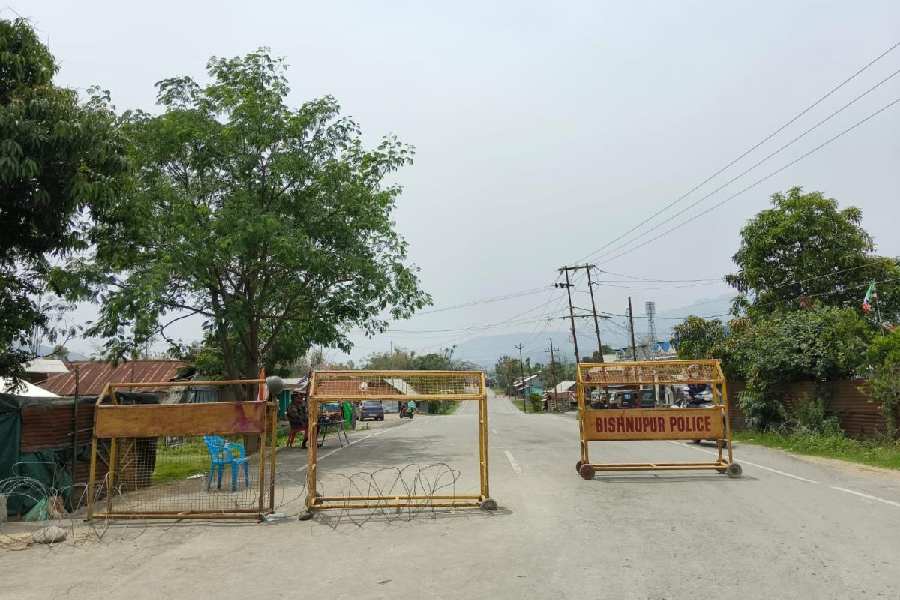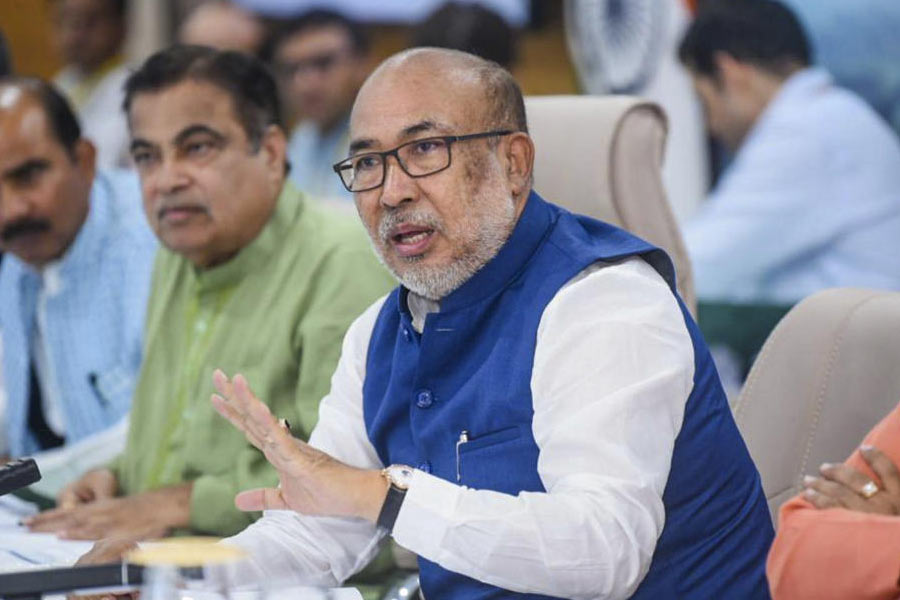The 10km stretch between Kwakta and Churachandpur can take up to 45 minutes by car, because you are stopped at as many as seven checkpoints.
The first six from the Kwakta side are manned by battle-ready personnel from six different forces: Manipur police, the army, Assam Rifles, the Indo-Tibetan Border Police, the BSF and the CRPF.
Volunteers of the Indigenous Tribal Leaders’ Forum (ITLF), a conglomerate of recognised Kuki-Zo tribes in Churachandpur, man the last checkpoint under “a local arrangement”.
The heavy security owes not just to the impending Lok Sabha elections: Outer Manipur, which includes Kuki-Zo-majority Churachandpur, votes on April 19 and 26 while Inner Manipur, in which Meitei-majority Bishnupur district (where Kwakta is located) falls, does so on April 19.
The security has been in place since July in a state yet to come out of the now 11-month-old strife between the majority Meiteis and the Kuki-Zo that has left at least 221 people dead and over 67,000 displaced.
That polling in Outer Manipur, a single constituency, has been split into two days tells its own story.
The heavily guarded “buffer zone” between Kwakta and Churachandpur, officially marked a “sensitive area”, had faced the brunt after a rally opposing the Meiteis’ demand for Scheduled Tribe status turned violent in Churachandpur on May 3, kicking off state-wide unrest.
Destroyed dwellings and burnt vehicles line the highway at a few places. The elaborate security measures are a reminder how the state remains — in the words of many here — “emotionally divided” and with “no solution” in sight.
Displaced people and community leaders in Imphal city and Churachandpur town — on different sides of the divide — tell the same story of loss, longing and anger at the way the conflict has been handled and the claims of normalcy from politicians.
Prime Minister Narendra Modi said in a newspaper interview, published on April 8, that there was a “marked improvement” in the Manipur situation because of “timely intervention” by the BJP-led central and state governments.
A Churachandpur-based Kuki MLA from Modi’s own party dripped sarcasm as he reacted to the claim.
“If 11 months of ethnic cleansing and division is a marked improvement due to ‘timely intervention’, the Oxford dictionary may have to review the meanings of the words ‘timely’, ‘marked’ and ‘improvement’,” the MLA said.
The situation is equally edgy in the “buffer zones” —border areas between Meitei and Kuki-Zo areas — elsewhere.
The predominantly Valley-based Meiteis still do not venture into Kuki-Zo areas in the hills. Over 59,000 people from both communities are still scattered around the 320 relief camps in the state, unsure when they can return home as the unrest edges towards its anniversary.










